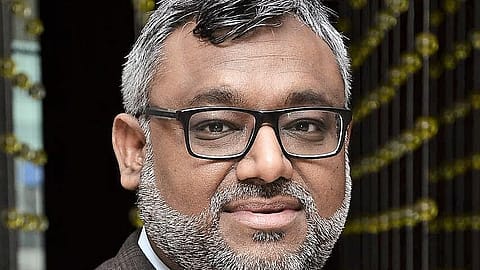IHG aims for 50 operational hotels in the next 2-3 years
Intercontinental Hotels Group has been in the country for nearly half a decade. Now, the owner of the Holiday Inn Express brand plans to expand in India with renewed vigour.

Intercontinental Hotels & Resorts (IHG) started in 1946 as a subsidiary of the legendary Pan American World Airways, better known as PanAm. In 1965, it opened shop in India with the iconic Oberoi Hotel in New Delhi, through a tie up with The Oberoi Group of Hotels & Resorts.
Soon after, the British hospitality chain entered into a partnership with the Tata Group to operate and manage the tower wing of the iconic Taj Palace Hotel in Mumbai. These partnerships don’t exist but today, and the chain has 32 hotels in India operating under four brands — Intercontinental, Crowne Plaza, Holiday Inn and Holiday Inn Express.
Sudeep Jain, vice president - development at IHG, spoke to Fortune India, about the company’s expansion plans. Edited excerpts:-
What is the broad plan to expand the Intercontinental Hotels Group portfolio in India?
The goal is to get 150 operational hotels in India in the next 15 years, and 50 by the next two to three years. We should have 100 properties signed also by next year. Our biggest growth brands are the Holiday Inn which is the bulk of the portfolio going forward. Currently, the Crowne Plaza and Holiday Inn make up a large part our portfolio.
The company has largely chosen an asset light model to expand in India. Could explain why?
The number one reason is the growth pace. If I want to use my own capital to grow I have limited resources, limited capital to be deployed worldwide. Each hotel could be an investment of Rs 100 crore and more. So I need a lot of capital if I was to grow on my own. That is one of the big reasons why if I want to expand quickly, I have to think of taking the assistance of right owners and right partners. The second thing is that our expertise is in how to run a hotel. How do I price it, how do I train people, how do I establish brands, how do I become a top choice for owners and how do I become a top choice for customers. That is our expertise. Our expertise is not investing in real estate.
Recommended Stories
Secondly, the two businesses are fairly, the ownership of a hotel and the running of a hotel. In the more mature markets hotel companies are becoming more of brands and there are third party operators who run the hotels. India is not yet at that spot but my sense is that the country is getting there.
Typically when do you start engaging with your partners who own the real estate?
Ideally, if I had a magic wand I would like to get in and engage with the partner as soon as he has the intent to build a hotel and has the piece of land. But that is a bit. But that is not how it happens. A lot of times we will get involved with project at any stage. It could be one week from opening or it could be right at the beginning.
What we are seeing in India is a slight tilt towards owners getting us involved when they are a little further in the lifecycle. So maybe they have built the hotel and got the permits or maybe they have made the decision to make either a luxury or a mid-scale hotel.
(INR CR)
Intercontinental Hotels Group has a large portfolio of brands. How do you decide which one works for a particular location?
Currently in India we have four brands. These are mainstream brands and fortunately for us each one is a different swim lane. We have the Indigo and Kimpton which are a lifestyle brands. We also have another lifestyle-oriented brand called Even.
I wish I could say that in the top cities we do luxury and in lower tier cities we do the mid-scale brands. But we see cities can take all those tiers because there is demand. How we decide the brand is the intent of the owner, number two is the location. Third is what can you build. If I can build only 1 lakh sq ft then luxury doesn’t work but in a 5 lakh square feet development it does. 80% of our development pipeline is going to be Holiday Inn. It is the biggest hotel chain in the world in that category. It is very well recognised across India and the world. It is also the brand of choice for many Indians travelling abroad.
Finally, the growth of the hotel sector in India is in the mid-tier, cities like Indore, Bhopal etc. And this brand is absolutely spot on for those markets.
Are the likes of OYO and Airbnb becoming a threat to traditional hotel chain operators?
Personally, AirBnB and OYO are not direct competition. OYO is much more of an aggregator. They are a booking engine and give a quality assurance stamp.
So far, I can tell you that when we are looking at and evaluating projects, very rarely have I come across the hotel owner say that I am talking to you and OYO. It would usually be the other hotel chains. Not that it wouldn’t change going forward but so far we haven’t seen a massive impact.